Recently Bulgaria's capital Sofia hosted the premiere of a documentary entitled Antarctica - Ice-cold Love. The film was dedicated to Antarctica and renowned Bulgarian researcher Professor Hristo Pimpirev, who has been exploring this continent for a quarter of a century now. Hristo Pimpirev is the doyen of the Bulgarian Antarctic Programme, a founder and Chairman of the Bulgarian Antarctic Institute. Professor Pimpirev is also a director of the National Center for Polar Research. The celebrated geologist represents Bulgaria at the International Scientific Committee on Antarctic Research and during the Antarctic Treaty Consultative Meeting. Moreover, he is the first Bulgarian to hoist the Bulgarian national flag at the South Pole. A glacier and a beach on the Livingston Island were named after Professor Pimpirev.
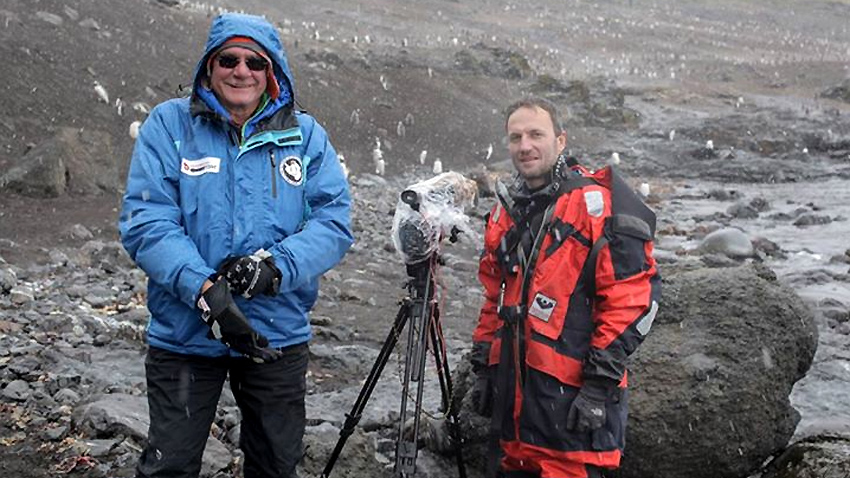
How did you fall in love with the frozen continent?
“This is a very long story. Each love usually starts at first glance. When I was a child I learnt about Antarctica from geography atlases for the first time. I was very interested in Geography and I learnt about a remote, white and ice-cold continent which appeared last on the world map. My first expedition to the Antarctic was back in 1987. There, I had the chance to see the continent's natural beauty and its virgin flora and fauna. You can not see anything like this on any other continent. The moment you reach Antarctica, you have the feeling that you land on another planet. I instantly fell in love with the white continent and have been visiting the Antarctic every year ever since. I and my colleagues, who help me maintain the Saint Kliment Ohridski polar base and do the scientific researches, love the white continent. That is why we return to Antarctica again and again. That is also the reason why the Englishmen who discovered the continent in the beginning of the 19th century called the Antarctic the Frigid Mistress, because once you go there, you fall in love with it for good.”
What are the results of the research made on Antarctica?
“Antarctica is a big continent, larger than Europe and Australia. There are a lot of natural resources on this continent, both renewable and non-renewable. Antarctica is rich in oil and gas deposits, copper, gold, silver, iron and coal. Mankind will be forced in the future to use the resources of Antarctica, in order to progress further. We have to study the rocks on this continent, in order to localize its ores and minerals. I and the other Bulgarian geologists made an evaluation of the potential mineral deposits in the area surrounding our polar base. Thus, Bulgaria would have a serous contribution to the future geological studies, if the countries decide to extract the mineral resources on Antarctica.”
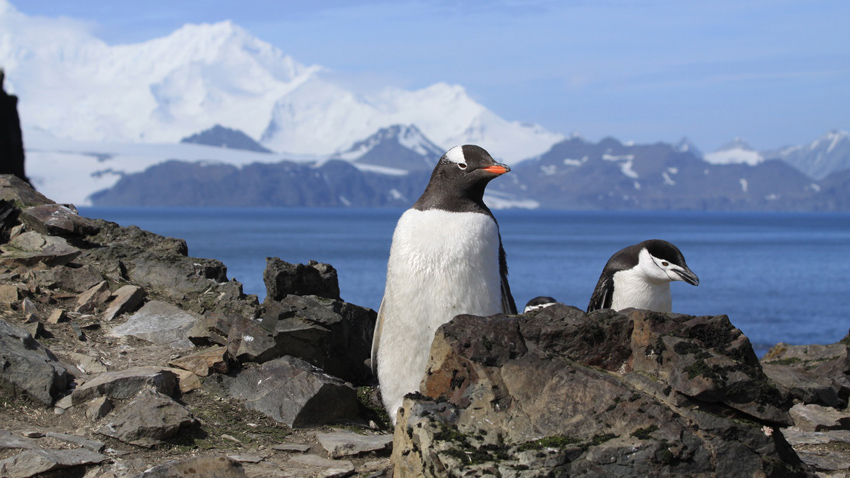
Fortunately, the moratorium on the exploitation of natural resources on this continent is valid until 2040, so we can guarantee that Antarctica would not become polluted in the next 25 years or so. Later, the countries will re-examine its statute and if the world develops environmentally-friendly and waste-free technologies we could start extracting resources there.
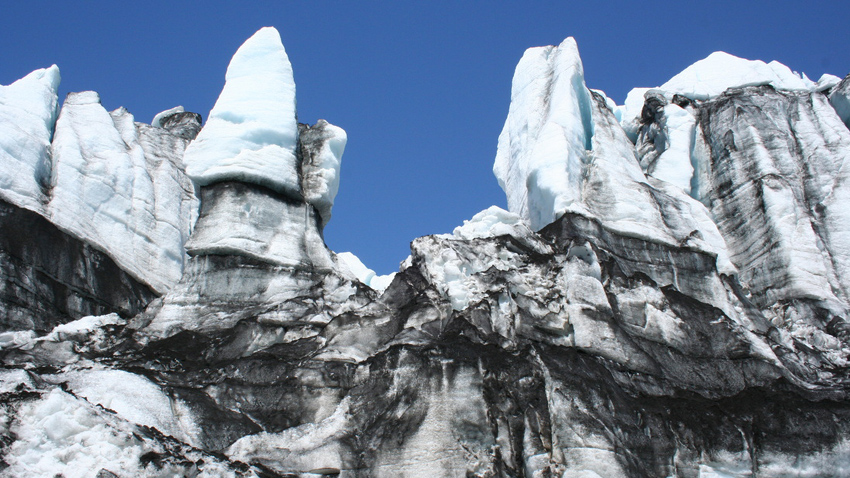
How important is Bulgaria's presence on the Ice Continent?
“Our presence on Antarctica would have been impossible without the launch of the Bulgarian base and the fulfillment of Bulgaria's scientific research. We could have been in the shoes of Slovakia and Slovenia, which will not be able to benefit from the continent's natural wealth when the countries, which have representatives on this continent, start to extract minerals and ores there. Our team lives in heavy conditions and its members spend a long time far from their families, so that our country remains on the map of the white continent. ”
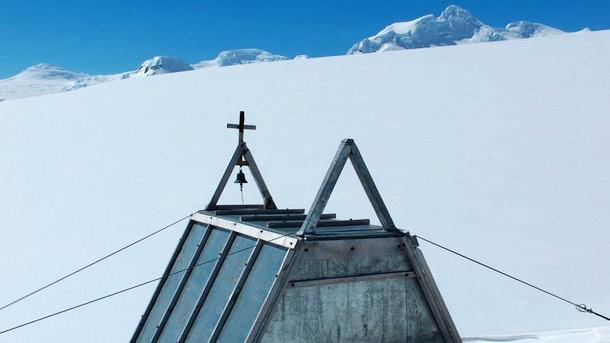 Do you have a favorite place on Antarctica?
Do you have a favorite place on Antarctica?
“Of course, when people live somewhere for a long time, they find a favorite place, where they can seclude themselves and watch the sea and the penguins. The Saint John of Rila Orthodox Chapel is the favorite place of the Bulgarian polar team. We visit this chapel on all Orthodox feasts. However, everyone has his own favorite place on Antarctica. My favorite spot is a bay which appeared on the Bulgarian beach when the glacier melted a bit. It is a great pleasure to me to visit this place in my spare time. I merely go there and watch the ice blocks fall into the crystal clear waters.”
Finally, we would add that all young and elderly fans of nature and travel would definitely like the film. Besides, it shows the life in the Bulgarian polar station and also focuses on the team's scientific projects and the climate changes. Ema Konstantinova is the director of the movie, cameraman Rumen Vasilev, producer Georgi Toshev.
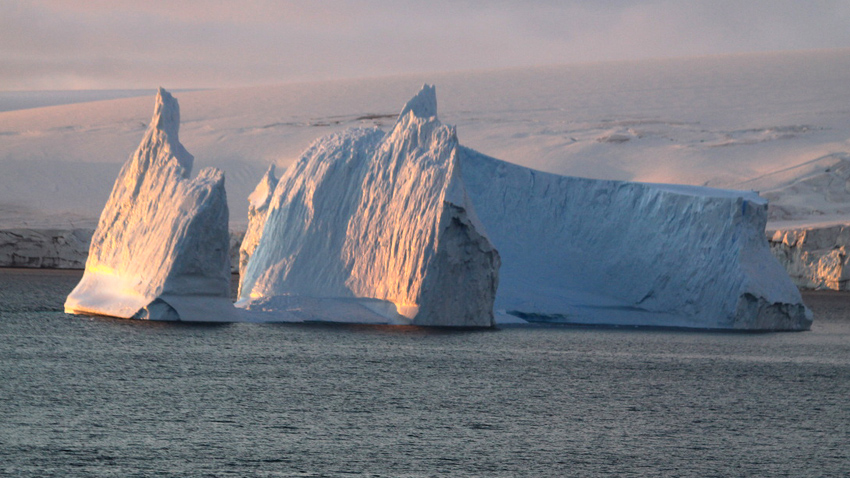
English version: Kostadin Atanasov
A new short film showcasing Bulgaria's natural beauty, resorts and leisure opportunities is set to attract tourists from China and the Middle East. Titled "Bulgaria: A Touch of Nature" and created by Stiliyan Kadrev, the 15-minuteo offers a visual..
Guided by the idea of preserving the Bulgarian spirit, culture and language, with 35 years of experience as a Bulgarian teacher and having worked in different European countries, in 2017, Iliana Boyajieva Smith founded a Bulgarian school in..
President Rumen Radev was a guest at the Elhovo holiday and the celebration of 100 years since its declaration as a town, BTA reported. According to the head of state, the border town of Elhovo "is today a place with spirit and traditions, with..
A new short film showcasing Bulgaria's natural beauty, resorts and leisure opportunities is set to attract tourists from China and the Middle East...

+359 2 9336 661
